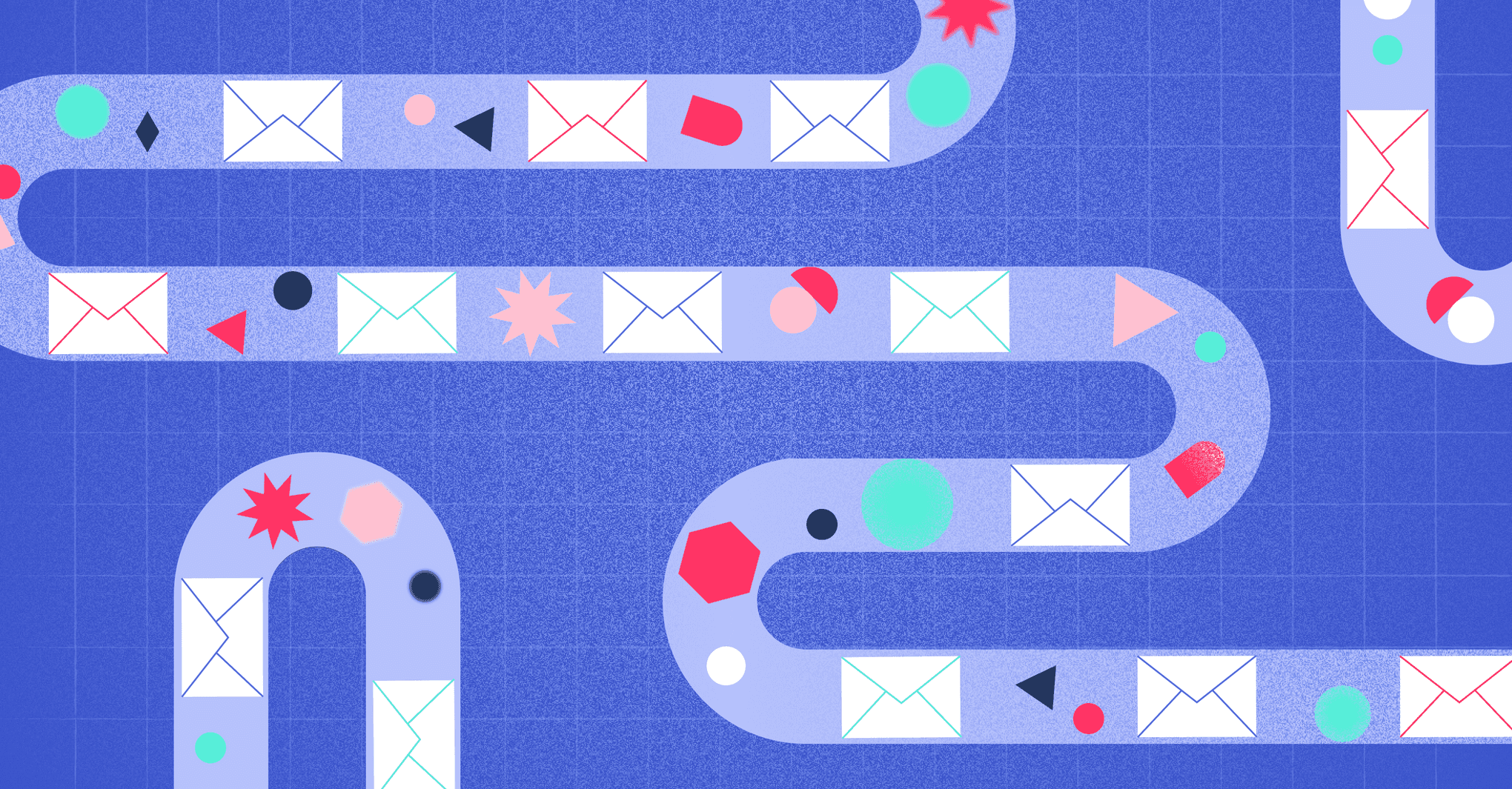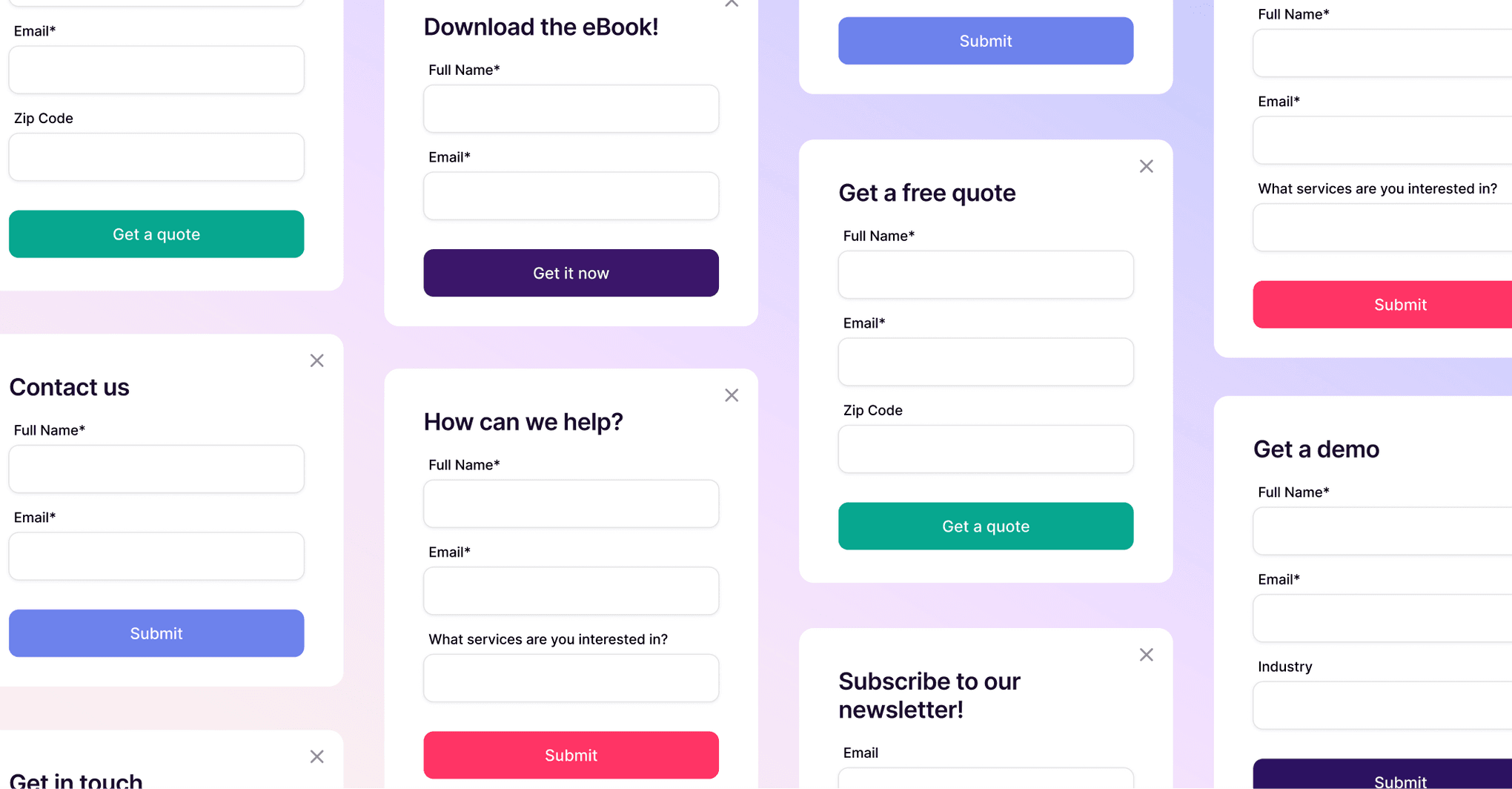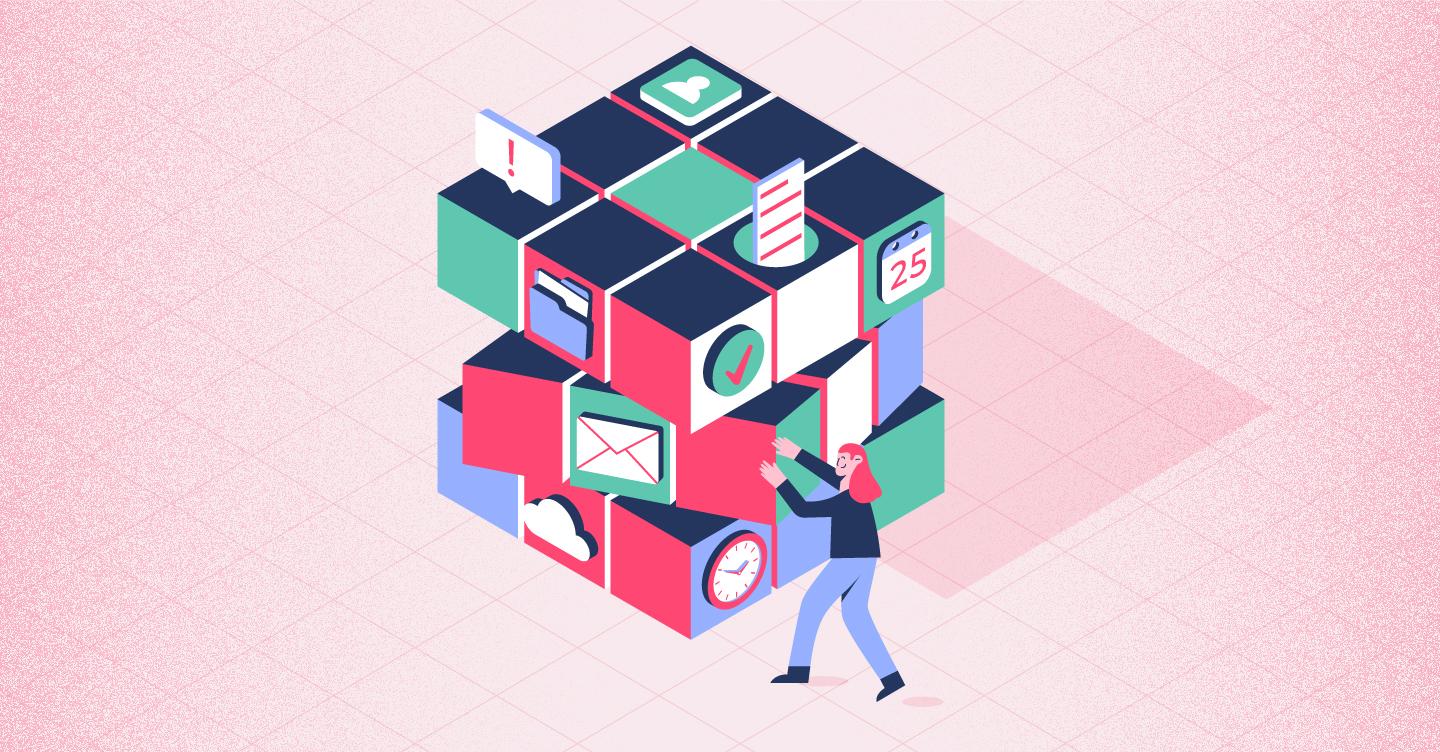Perri Gutteridge
VP of Customer Success
There’s no denying that business leaders love to geek out over operations. There’s something deeply satisfying about clean dashboards, finely tuned workflows, and automations that run like clockwork. It feels like progress you can see.
But the problem is that too many companies get so wrapped up in scaling operations that they forget the very thing operations are supposed to serve: customers.
Scaling workflows and processes might make you efficient, but if your customer relationships are weak? You’re building a castle on sand. It looks impressive, but it won’t last when the tide comes in.
That’s why the businesses that learn to scale customer relationships will outlast, outperform, and outmaneuver those that only focus on ops.
And yes, Copper CRM is built for exactly this philosophy.
Why it’s so easy to over-engineer with operations
Think about the last time you saw a business brag on LinkedIn. Chances are, it wasn’t about how deeply they connected with customers. It was about how they implemented a new system, cut 22% of manual tasks, or automated yet another process.
Why? Because ops feel measurable. You can show a before-and-after chart and instantly prove “progress.” Customers, on the other hand, don’t fit neatly into a pie chart. They’re complex, emotional, and sometimes unpredictable.
That’s why so many companies default to obsessing over operations, it feels safer. But safe doesn’t build loyalty.
Here’s what happens when you over-engineer ops at the expense of relationships:
Your team spends more time updating tools than talking to customers.
You get faster at moving people through a funnel, but churn skyrockets.
You optimize response times while missing the quality of those responses.
In other words, you become efficient… at losing customers.
Why scaling customer relationships matters more
Here’s the truth: operations make you efficient, but relationships make you enduring.
When you scale customer relationships, you’re not just increasing the number of touchpoints. You’re deepening trust, creating loyalty, and giving customers a reason to stick around even when a competitor comes knocking with a cheaper price or flashier feature.
Think of it like this:
Ops can shave minutes off a process.
Relationships can buy you years of loyalty.
Which one do you think compounds over time?
That doesn’t mean operations don’t matter. They absolutely do, but they should exist in service of the bigger goal.
The smartest companies build operations as a framework that supports relationships, not one that replaces them.
When ops and relationships work hand in hand, the results are powerful. Operations give you the consistency and scalability you need, while relationships deliver the trust and human connection customers can’t get anywhere else.
The brands people stick with for decades — whether it’s their local coffee shop or a software provider — are rarely the ones with flawless operational efficiency. They’re the ones that made people feel heard, valued, and part of something bigger.
The challenges of customer relationship management
Of course, this is easier said than done. Scaling relationships sounds lovely in theory, but the real challenges of customer relationship management are why so many businesses revert back to ops:
Volume: As your customer base grows, it becomes impossible to manually track every interaction.
Consistency: Relationships aren’t built from one good quarter. They require repeated, thoughtful touchpoints over time.
Data silos: Teams often only see part of the picture—support knows one story, sales knows another, marketing another. Without a shared view, relationships suffer.
Time constraints: Building relationships takes effort. And when teams are stretched thin, ops wins because it feels faster.
Recognize yourself in this list? You’re not alone. That’s why many leaders convince themselves scaling ops is “good enough.” But good enough isn’t what keeps customers loyal.
Customer relationship management tips you can actually use
It’s easy to nod along when people say “relationships matter more than ops.” But how do you actually put that into practice without drowning in vague platitudes? Here are real-world strategies to scale customer relationships in ways most companies overlook.
1. Treat customers like partners, not passengers
Instead of seeing customers as people you “service,” start treating them as collaborators in the journey. Invite them into conversations about where your product or service is heading. Share roadmaps. Ask what problems they’re really trying to solve.
This kind of transparency creates a partnership mindset, where customers feel invested in your success because you’re invested in theirs.
2. Build micro-communities, not mega-blasts
Newsletters and mass updates have their place, but relationships rarely deepen in a broadcast. They deepen in smaller, more focused spaces.
Create niche groups (Slack, LinkedIn, forums) around specific customer interests.
Host intimate roundtables instead of giant webinars.
Encourage peer-to-peer connection, not just company-to-customer interaction.
Micro-communities give customers a sense of belonging, which is far more powerful than being one of 10,000 email subscribers.
3. Celebrate progress, not just purchases
Most companies throw confetti at the point of sale and then go quiet until renewal time. That’s a missed opportunity.
Start celebrating the moments in between and recognize them with a personalized message or gift, like when:
A customer hits their first milestone with your product.
They expand into a new market using your service.
They simply stick with you another year.
Recognizing progress reinforces the relationship continuously, not just at high-stakes moments.
4. Make responsiveness a relationship builder
Speed matters, but not just because it “closes tickets faster.” Responsiveness tells customers, “You matter.”
It’s not about robotic instant replies, it’s about thoughtful acknowledgment. Even a quick, “Got your note, working on this now” builds more trust than silence until you have a full answer.
Consistency in responsiveness is one of the simplest ways to show reliability at scale.
Get the latest from our blog every month
5. Give customers a voice in your brand story
Here’s a tip few companies use: make customers the protagonist of your story.
Feature them in case studies.
Highlight their wins on social.
Ask them to share their best practices with your wider audience.
This shifts the spotlight and says, “We’re proud of you,” which in turn makes customers proud to be associated with you. That emotional connection is gold when you’re looking to scale customer relationships.
6. Anticipate needs before they ask
Most businesses wait for a support ticket to land. Great businesses get there first.
Proactively check in when you notice patterns (like a drop in usage or missed deadlines).
Share resources that solve problems customers didn’t even know they’d have yet.
Frame your outreach around helping them get ahead, not reacting after the fact.
This kind of foresight transforms you from a vendor into a trusted advisor.
7. Humanize at every level of growth
Growth doesn’t have to mean getting colder. Bigger teams, more automation, and more templates can make a company feel distant—but only if you let them. The truth is, scaling is the perfect time to double down on warmth and authenticity.
Talk like a human. Skip the stiff corporate speak (it may be your brand voice, but it doesn’t have to be your email voice!). Plain, friendly language goes a long way in making customers feel comfortable and understood.
Trust your team to be flexible. Give frontline employees the freedom to make judgment calls that put people over policies. A little empathy in the moment can do more for loyalty than a perfectly followed script.
Show personality. Humor, humility, and even a bit of vulnerability remind customers there are real people on the other side of the conversation.
As you grow, remember: people connect with people, not faceless brands. Keeping humanity at the core of your communication is how you truly scale customer relationships without losing the authenticity that made people choose you in the first place.
8. Invest in long-term memory
Customers don’t like repeating themselves. They don’t like feeling forgotten. One of the simplest yet most powerful strategies? Build a long-term memory.
Remember what they struggled with last year.
Recall the goals they mentioned in passing.
Acknowledge the history of your relationship in conversations.
It’s not about surveillance, it’s about making customers feel like they’re known. That “you remembered” moment is worth more than any efficiency gain.
Scaling relationships isn’t just about frequency of contact. It’s about weaving trust, responsiveness, memory, and humanity into every stage of the customer journey.
If you want to scale customer relationships in a way that sets you apart, these are the strategies most companies skip — because they take thought, not just tools.
Why scaling ops without relationships is shortsighted
Let’s imagine two companies:
Company A has flawless operations. Lightning-fast processes, airtight automations, immaculate reports. But their customers feel like numbers.
Company B has solid but imperfect ops. Every so often, something takes longer than it should. But their customers feel valued, connected, and heard.
Which one do you think survives longer?
You can’t “out-operate” weak relationships. A competitor with stronger customer loyalty will beat you every time.
On the flip side, companies that scale customer relationships create a dynamic no dashboard can replicate. When customers love you, they’ll forgive hiccups. They’ll pay more. They’ll wait longer. They’ll advocate for you.
That’s long-term leverage.
How Copper CRM makes scaling relationships possible
Scaling operations isn’t the problem. In fact, you should scale your ops—it’s the only way to keep up with growth. The mistake most companies make is putting operations in the driver’s seat instead of the passenger seat.
Your ops should support the bigger goal: to scale customer relationships. That’s where the real long-term value lives. And with the right client and project management platform, you can design systems that make building stronger customer connections not just possible, but natural.
Copper CRM is built on this philosophy. Here’s how it helps you balance efficiency and humanity:
Customizable pipelines: Relationships don’t stop at sales. With Copper, you can build pipelines that reflect the entire journey—whether that’s tracking a lead through discovery, guiding a new client through onboarding, or resourcing a long-term customer project. Every stage is visible, every touchpoint is organized, and no one falls through the cracks.
Pipeline automations: Automations don’t have to feel generic. With Copper, you can set up nudges, reminders, and stage-based emails that still carry a personal touch—like addressing specific goals, referencing past conversations, or adjusting tone by pipeline stage—so every automation feels less like a template and more like a thoughtful check-in.
Website forms: Everyone who reaches out deserves a response. Copper’s forms don’t just capture leads — they automatically route inquiries into the right pipelines so your team can follow up with every single person. Whether it’s a hot lead, a curious prospect, or a current client asking for resources, you’ll never leave someone hanging.
Seamless Google Workspace integration: Connect Gmail, Docs, Sheets, and Calendar so your team spends less time juggling tabs and more time with people.
Integrations with hundreds of apps: Keep your operational stack humming in the background while relationships stay front and center.
In other words: you don’t have to choose between operations and relationships. Copper gives you the framework to scale both, but ensures relationships lead the way.
Where to start if you’ve been stuck in ops mode
If you’re reading this and realizing you’ve been sprinting on the ops hamster wheel — hey, don’t beat yourself up. Most companies start there. It feels safer to tighten up processes and color-code spreadsheets than to lean into the messy, unpredictable world of people. But at some point, you have to hop off that wheel and ask: are we scaling systems, or are we scaling relationships?
The good news? You don’t need to flip everything upside down tomorrow. Small, intentional shifts add up fast. Here’s how to start easing your way back toward relationships:
Check your energy spend. Where’s most of your team’s time and budget going right now. Is it smoothing out internal workflows, or actually talking to customers? Getting clear on that balance is the first step.
Spot your MVPs. High-value customers aren’t just the ones who pay the most. They’re also the ones who stick with you, sing your praises, or shape your product with great feedback. Those are the people worth extra care.
Pick one lever, not ten. Don’t try to overhaul everything at once. Maybe your fastest win is quicker responses. Maybe it’s more personalized outreach. Maybe it’s closing the loop on feedback. Choose one lever and focus.
Set yourself up to scale. Handwritten notes are sweet, but they won’t cut it once you’re juggling hundreds of accounts. This is where the right system — like a CRM built for relationships, not just deals — saves you from drowning while still keeping things personal.
The key is to remember: ops aren’t the enemy.
They just need to be pointed in the right direction. When your operations serve your relationships (instead of the other way around), that’s when growth feels both sustainable and human.
Relationships will always win
Here’s the stance, plain and simple: scaling ops feels like progress, but it’s a treadmill. Scaling relationships? That’s a flywheel. Every effort compounds over time.
The companies that last aren’t the ones with the flashiest ops stack. They’re the ones whose customers feel connected, valued, and supported.
So the next time you’re tempted to spend another quarter fine-tuning operations, stop and ask: “Are we scaling systems, or are we scaling relationships?”
Because in the long run, only one of those guarantees you’ll still be in business.
And if you’re ready to scale customer relationships the smart way, Copper CRM is here to make it both practical and powerful. Try it now for free for 14 days.






